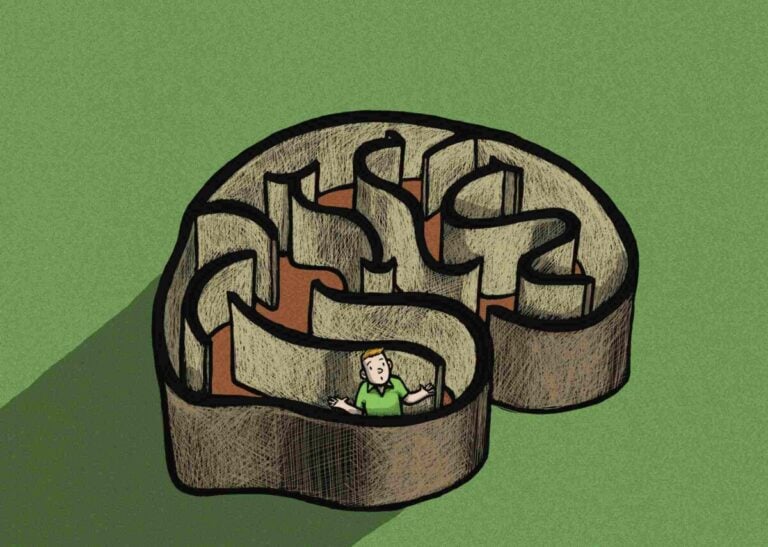Why can the experience of the past hinder success, how to find the hidden mechanisms of the psyche and turn the subconscious to benefit business?
Modern entrepreneurs are constantly looking for ways to achieve their goals. To the surprise of many, the secret of success sometimes lies in our unconscious. By looking inside ourselves, we can discover the psychological processes that “control” our decisions and behavior.
What is the unconscious?
Human behavior is determined not only by conscious motives, but also by hidden, unconscious aspirations.
Research in psychology and neuroscience shows that most of our decisions are made at an unconscious level, before we are aware of them.
In business, this means that our and our partners’ behavior, employee decisions, and even the strategic choices of leaders are often based on deep, unconscious motives.
The founder of the theory of the unconscious is Sigmund Freud. Despite the transformations and evolution of his ideas, the fundamental ideas remain the same.
One should not confuse the erroneously common idea of the unconscious (or “subconscious” as it is sometimes called) as a disorderly accumulation of ideas and impulses arising from the depths of the human soul.
Internal settings: helpers and enemies
When experiencing difficulties in business matters, many entrepreneurs do not think that the problem comes deep from within. If a person gets the wrong result, it is possible that the decisions he made were under the control of the unconscious. This is how procrastination, repetitive scenarios, uncertainty, lack of desired income, etc. manifest themselves.
Another example is “Impostor Syndrome.” This is a state in which a person does not recognize his achievements and is constantly afraid of being “exposed” and rejected. In business, this prevents an entrepreneur or manager from adequately representing his interests to partners and leads to missed opportunities due to fear of failure or criticism.
But there are also positive attitudes. They often unconsciously guide us towards our goals. Let’s look at some of them.
Unconscious factors – “helpers”:
- Intuition is the unconscious ability to “feel” or “know” something without conscious reasoning. Sometimes successful entrepreneurs say that their intuition has helped them make critical decisions, such as when to invest in a new project or start a partnership. In fact, this is nothing more than a reflection of past experiences in the subconscious.
- Confidence in your abilities. People who received the proper level of recognition in childhood and adolescence turn out to be much bolder as adults. Their self-esteem depends on their awareness of their own worth, and not on the opinions of strangers.
- Hidden motivation. Unconscious aspirations and desires can push us to achieve goals. Often a person strives for success not only for material benefits, but also out of a desire to show himself his competence and importance.
- Habits and skills. Over the years, established behavior can become very useful in business.
How to discover unconscious motives in yourself?
Unconscious ideas and desires behave differently than conscious ones. They cannot be changed by appeal to logic or material evidence. They cannot be accessed through introspection, that is, by asking questions of oneself and looking deep within oneself.

Hidden factors cannot be freely discussed over a cup of coffee because powerful defense mechanisms keep them suppressed. Our feelings and thoughts are constantly subject to internal or external censor. It suppresses those ideas and desires that, in the opinion of this censor, threaten mental well-being or even survival.
But one can understand the action of the unconscious by the results or mental defenses.
In order to maintain integrity, the psyche uses defense mechanisms – processes aimed at preventing threats.
Types of psychological defenses
- Projection – attributing one’s own desires (especially destructive ones) to another person.
- Introjection or identification: when a person identifies himself with another person either as an object of admiration or as an object of persecution.
- Denial: refusal to acknowledge external reality or stimuli, no matter how threatening.
- Isolation: when an idea or memory is recognized in the mind, but the accompanying emotions are rejected.
A striking example is the Challenger space shuttle disaster in the United States, when a fuel tank exploded, killing 7 crew members. This case became the starting point for the blue study of the unconscious in organizations. Several books and articles have been published offering answers.
After the disaster, a commission was created under the leadership of William P. Rogers. At first, no one understood what provoked the tragedy. The commission was ready to admit it was an accident. However, this explanation did not correlate with the level of technological development and competence that was associated with NASA.
Then analyst Richard K. Cook came forward with a story that contradicted the agency’s established image. In a memo written six months before the crash, Cook warned of a possible threat to flight safety due to erosion of the rocket’s o-ring seals.
When questioned by investigators, Cook stated that he received this information from SRB project engineers and simply passed it on in the memo.
Investigators into the cause of the disaster have come to realize that NASA leaders missed many warning signs of potential problems. Moreover, ignoring did not stem from ignorance or stupidity, they rather hid the truth from themselves. It was hard to accept that the agency they loved so much wasn’t perfect.
This is where psychoanalysis is important. Unlike other approaches, which believe that people lie to protect their own interests, psychoanalysis reveals a different understanding: people can deceive themselves without realizing it.

Our ideas about the world and ourselves are not always objective. They are formed under the influence of emotions – pride, anxiety, fear, and past experiences that have left traces in our psyche. Sometimes we mask the truth from ourselves due to pain, the complexity of reality, or attachment to our desires.
NASA leaders, by ignoring potential dangers and not wanting to hear “bad news,” were likely suffering from repression, a process where dangerous ideas are suppressed and confined to the subconscious. They could ignore signs of threat, replacing disturbing reality with pleasant but illusory fantasies.
This may be exacerbated if they are surrounded by people who also tend to distort reality to suit their desires, or if current worries trigger memories of past traumas that threaten to overwhelm them.
Is it possible to turn internal processes to benefit the business?
Recently, many books and techniques have appeared that tell how you can help yourself. Unfortunately, in knowing ourselves, it is very easy to take the path of false complacency, believing that we know everything about ourselves.
Self-analysis is possible, but it requires not only strong motivation, but also the ability to cope with defense mechanisms. The most reliable way is to first turn to a psychoanalyst and, after a greater understanding of yourself has formed, continue introspection.
What can a manager do to ensure that the unconscious does not hinder, but helps in business?
- Psychological consultation. Therapy is important both for managers and top managers, as well as for employees. Analytics will help to identify the hidden motives of people’s behavior, their needs and desires.
- Organization of group meetings and trainings. Such meetings create a safe atmosphere for the free expression of feelings, thoughts, and fears of each participant. As a result, people begin to understand each other better, the level of trust between them increases, which has a positive effect on work productivity.
- Creating a safe space in the organization. It is important to create an atmosphere in the company, from management to each individual employee, where everyone has the opportunity to speak openly about their problems and receive support.
Therefore, understanding and taking into account unconscious motives and aspirations becomes an important element of successful leadership and management in modern business. The ability to analyze and interpret employees’ implicit motives and actions can help create more effective teams, improve motivation and productivity, and anticipate and prevent possible conflicts and problems.










